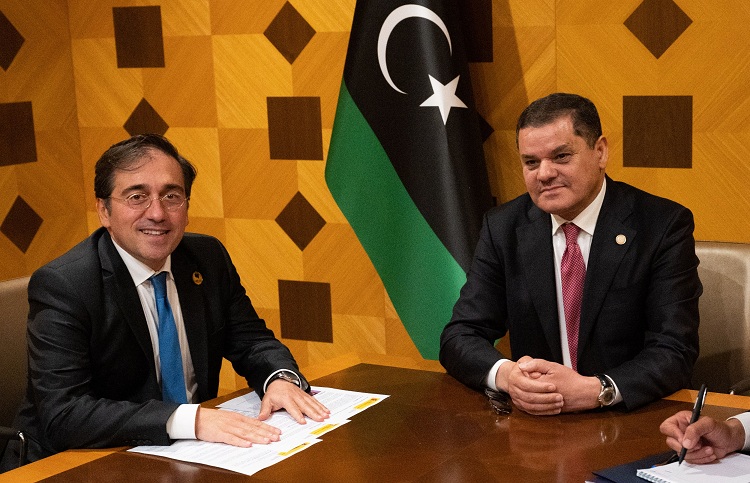Eduardo González
The Minister of Foreign Affairs, José Manuel Albares, participated yesterday in Tripoli in the Ministerial Conference for the Stabilization of Libya, where he expressed Spain’s support for the December 24 elections and called for “the departure of all foreign fighters” from the North African country.
“I have conveyed Spain’s position, both the support for the elections to be held as scheduled on December 24 and the need to stabilize the country with the departure of all foreign fighters, including mercenaries, and the need to provide a single budget to ensure economic stability,” the minister said at the end of the conference, which brought together Western representatives (including the foreign ministers of France and Italy and senior officials of the United States), Arab states and the United Nations.
He continued, “I also had meetings with my counterparts from Saudi Arabia (Faisal bin Farhan al Saud), to continue launching our relations; from Sudan (Asma Abdallah), a key country for Libyan stability; and especially with my Algerian counterpart (Ramtane Lamamra), with whom I have continued to strengthen our strategic partnership, especially in the energy field”. In addition, Albares also held bilateral meetings with the President of the Libyan Presidency Council, Mohamed Yunus al Menfi, and with the Prime Minister, Abdulhamid Dbeibah.
On October 18, Albares participated in a breakfast meeting in Luxembourg with his EU colleagues, the Libyan Foreign Minister, Najla Mangoush, and the European Union High Representative for Foreign Policy, Josep Borrell. During that meeting, the Minister assured that “Spain will be increasingly committed to Libya” because “it is a very important Mediterranean country, where many of the crises affecting the Mediterranean, the Maghreb and the Sahel converge”, such as jihadist terrorism and irregular immigration.
Yesterday’s conference, announced by Menfi during the 76th UN General Assembly, addressed Libya’s thorniest problems ahead of the presidential and parliamentary elections on December 24, such as the maintenance of the ceasefire in the country, the unification of the country’s various armed groups under a single security body and the withdrawal of foreign fighters. The elections were called by the current interim government, formed last February after months of UN-backed negotiations. The conference concluded with a final communiqué stressing the importance of confidence-building measures to ensure fair, transparent and inclusive elections.
During the meeting, the Libyan Prime Minister expressed his support for “the efforts of the higher electoral committee to hold the polls on schedule” and called for “a broad and effective participation of Libyans in the elections.” He also assured that it is possible to put an end to the serious political and security crisis that Libya has been experiencing since 2011, when NATO contributed to the triumph of the rebel groups over the dictatorship of Muammar al-Qaddafi.
For her part, the head of Libyan diplomacy, Najla Mangoush, called for “full respect for the principle of non-interference” and “deterrent measures against all those who interfere in the sovereignty of others”, while the French Foreign Minister, Jean-Yves le Drian, said that the conference on Libya to be held in Paris next November “will provide the final international impetus needed to support the elections at the end of the year and endorse the Libyan plan for the departure of foreign forces and mercenaries and to put an end to foreign interference.”





